![]()
|
Hope
& Carter |
Location and period of operation:
|
Hope &
Carter |
Burslem |
1862 |
1880 |
Earthenware
manufacturer at the Fountain Place
Works,
Burslem,
Stoke-on-Trent, England.
|
Previously: Pinder, Bourne & Hope
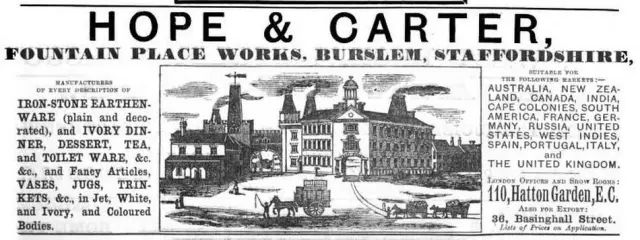
Hope & Carter
Fountain Place Works, Burslem, Staffordshire
Pottery Gazette & Glass Trades Journal - 1st October 1879
Examples of ware produced by Hope & Carter:
|
A 1879 advert states: "Manufacturers of every description of Iron-Stone Earthenware (plain and decorated), and Ivory Dinner, Desert, Tea and Toilet Ware, &c. &c., and Fancy Articles, Vases, Jugs, Trinkets, &c., in Jet, White, and ivory, and Coloured Bodies." "Suitable for the following markets: Australia, New Zealand, Canada, India, Cape Colonies, South America, France, Germany, Russia, United States, West Indies, Spain, Portugal, Italy, and The United Kingdom." In 1882 G. L. Ashworth & Bros. purchased some of the Hope & Carter designs when they went out of business. (Pottery Gazette, August 1908)
|


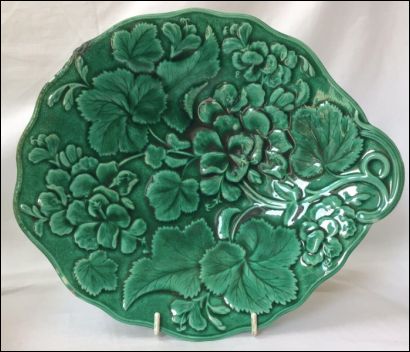
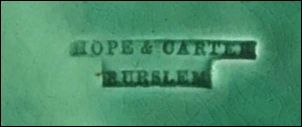
Hope & Carter produced green majolica ware featuring a range of leaves
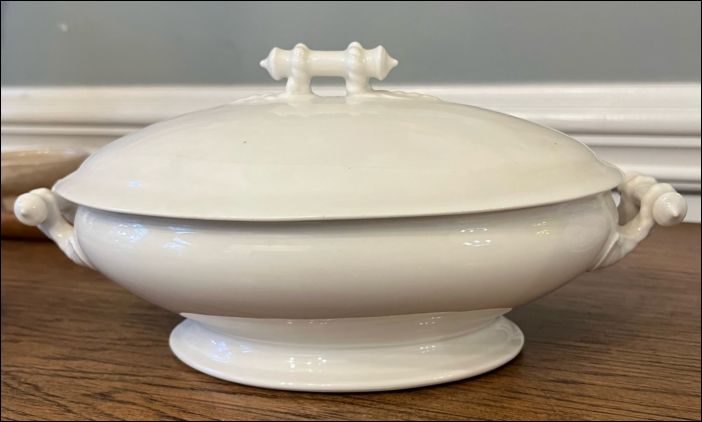 white ironstone covered serving dish |
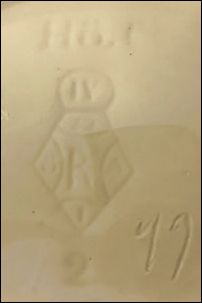 H & C the registration
diamond shows that the design was registered on the |
photos courtesy: Katie Rutland
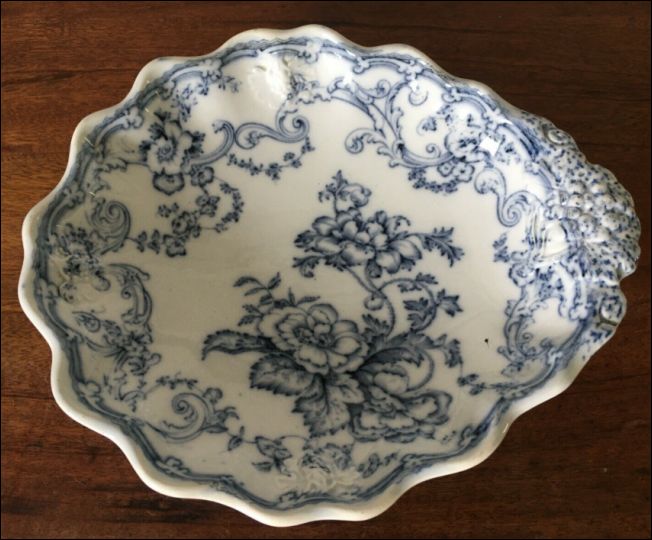 trinket dish in a mono-colour Balmoral transferware pattern |
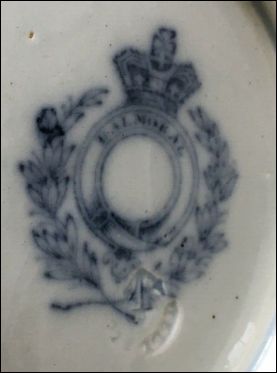 in this printed mark the initials H & C are missing but an impressed Hope & Carter is included |
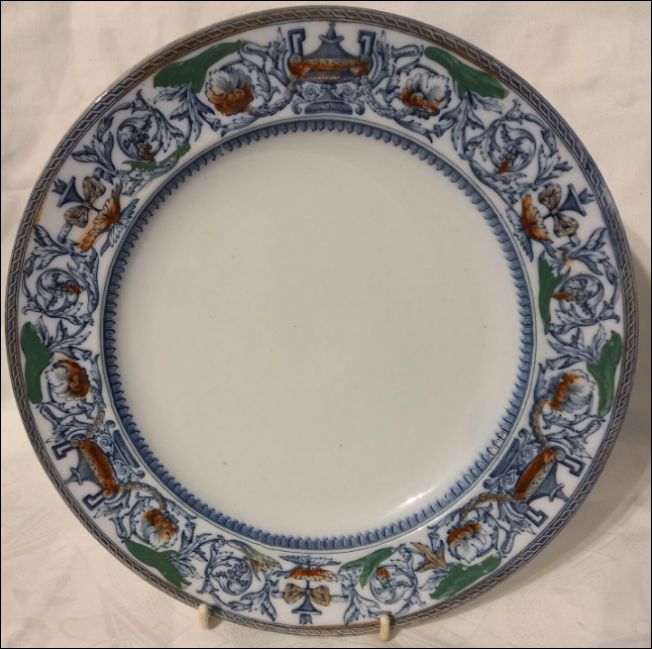 hand coloured transferware plate in the Lord Byron pattern |
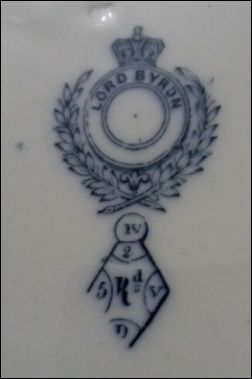 in this mark the initials H & C are missing but the registration diamond shows that the pattern/design was registered by Hope & Carter in September 1876 |
Marks used on ware for identification:
H & C
HOPE & CARTER

Hope & Carter
Burslem
impressed mark
white ironstone
|
White ironstone ware was generally produced for the American market. Most marks carried a printed Royal Arms with the Hope & Carter name in full. Sometime the mark was an impressed name or initials H & C and/or a registration diamond |
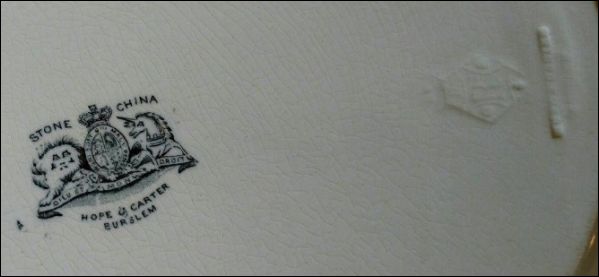
Stone China
Hope & Carter
Burslem
printed mark incorporating the Royal
Arms
and an impressed mark Hope & Carter
with a registration
diamond
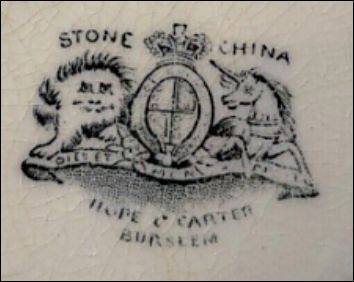 Stone China Hope & Carter Burslem |
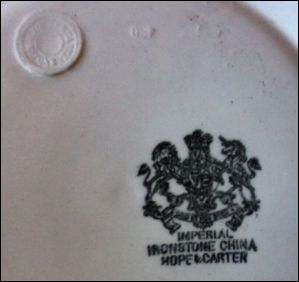 Imperial Ironstone China Hope & Carter and an impressed mark Hope & Carter, Ironstone |
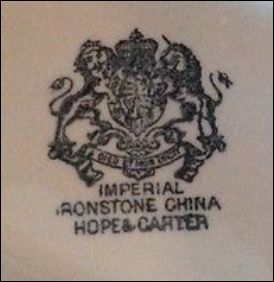 Imperial Ironstone China Hope & Carter |
transferware
|
Invariably the mark on transferware was two concentric circles surrounded by laurel leaves surmounted by a crown usually with the initial and the pattern name. Sometimes a registration diamond is included. Occasionally the initials H & C are missing. |
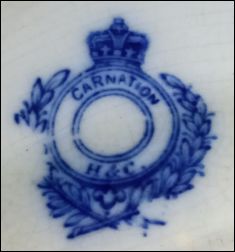 H & C |
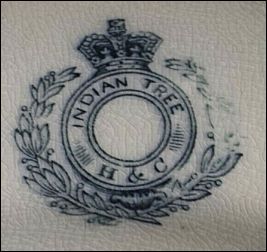 H & C |
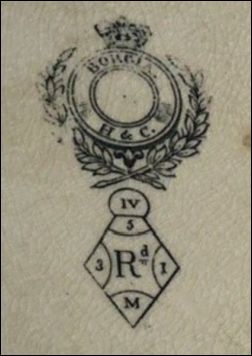 H & C the registration diamond shows that the pattern/design was registered by Hope & Carter on the 5th June 1872 |
 in this mark the initials H & C are missing but the registration diamond shows that the pattern/design was registered by Hope & Carter in September 1876 |
marks on transferware including the pattern name
Questions, comments, contributions? email: Steve Birks